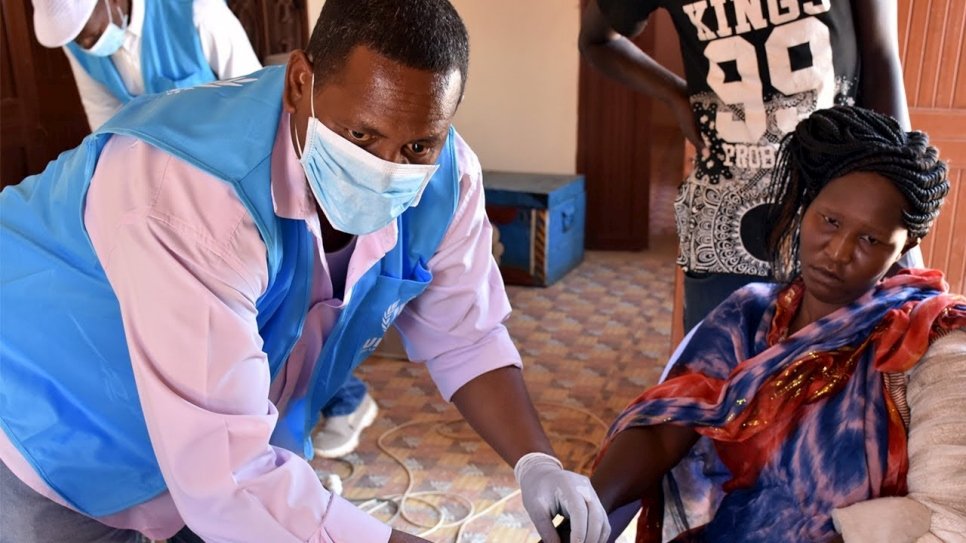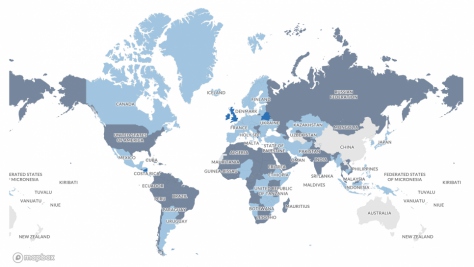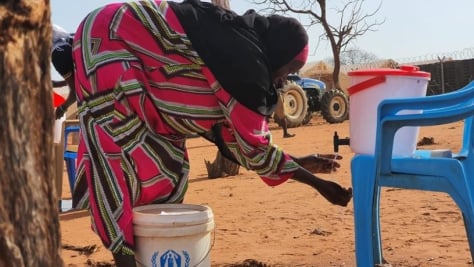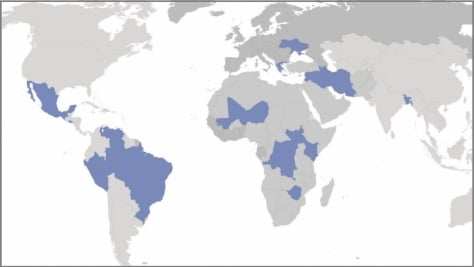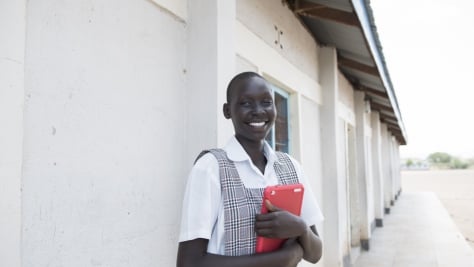Coronavirus outbreak
“If ever we needed reminding that we live in an interconnected world, the novel coronavirus has brought that home.”
These words, coming from UN High Commissioner for Refugees Filippo Grandi, express what the world has been experiencing since last year: the coronavirus disease, known as COVID-19, knows no borders, no language barriers. It threatens everyone on this planet – including refugees and other displaced people.
And it can only be tackled if we all, as one global community, work together and demonstrate solidarity. Because what this global coronavirus outbreak has undeniably demonstrated, is that the health of every person is linked to the health of the most marginalized and vulnerable members in a society. And these members often include refugees, stateless people and internally displaced people.
How does UNHCR help refugees and internally displaced people in the fight against the coronavirus?
Since the start of the pandemic, we’ve scaled up our work to keep refugees and internally displaced people safe across the globe. We responded with life-saving support such as boosting water and sanitation facilities, increasing access to public health and hygiene as well as airlifting emergency supplies and establishing isolation units. We continue to monitor the spread of the outbreak and take action to limit infections. We work hard to ensure that the rights and protection of forcibly displaced people are respected, including the right to seek asylum despite border closures.
Read the full report: UNHCR's response to the COVID-19 pandemic
At the same time, we are responding to the exceptional socio-economic and protection impacts of COVID-19 on people forced to flee in six prioritized areas of intervention:
- Reducing vulnerability through cash assistance, helping meet basic needs and facilitating access to services;
- Protecting incomes and livelihoods or employment opportunities, through start-up capital and agricultural investment to improve food security;
- Preventing and responding to gender-based violence and ensuring services for women and girls are accessible despite lockdowns;
- Promoting mental health and psychosocial wellbeing, and strengthening psychosocial counselling;
- Communicating and engaging with communities, through existing and newly built community networks and offering guidance and fact-based information;
- Restoring education, including through reopening schools safely in accordance with health protocols and investing in online and offline distance education and support to the most vulnerable, in particular for adolescent girls.
But the needs are growing and we cannot do this alone
With millions of refugees, internally displaced and stateless people now falling into conditions of extreme hardship induced by the pandemic, UNHCR is appealing for US$924 million in 2021, of which US$455 million to meet the exceptional needs caused by the disastrous socio-economic and protection impacts of COVID-19.
Financial support will help UNHCR stem and reverse the worst impacts of COVID-19 on refugee and displaced populations, and ensure they have access to critical protection and health services and global vaccine distribution.
“The worst of crises requires the best of humanity. Now is the time for action. We can prevent the disease from spreading. With your support, we can save lives.” - UN High Commissioner for Refugees Filippo Grandi
How does the coronavirus outbreak affect refugees?
Even before the compounding effects of COVID-19, persecution and conflict had forced around 80 million people from their homes at the beginning of 2020. Refugees and other displaced people belong to the most marginalized and vulnerable members of society. They are particularly at risk during this coronavirus disease outbreak because they often have limited access to water, sanitation systems and health facilities.
Over 80 per cent of the world’s refugees and nearly all the world’s internally displaced people are hosted in low- and middle-income countries, such as Jordan, Colombia, Iraq, Lebanon and Bangladesh. All of which are under severe economic strain. COVID-19 containment measures have disproportionately impacted refugees and forcibly displaced people. These populations face lost livelihoods, spiralling poverty, destitution, insufficient aid and development. They frequently face specific challenges and vulnerabilities that must be taken into consideration in COVID-19 readiness and response operations. Keeping the most vulnerable safe means keeping everyone safe.
Read more: Data reveals the impact of COVID-19 on livelihoods and futures

